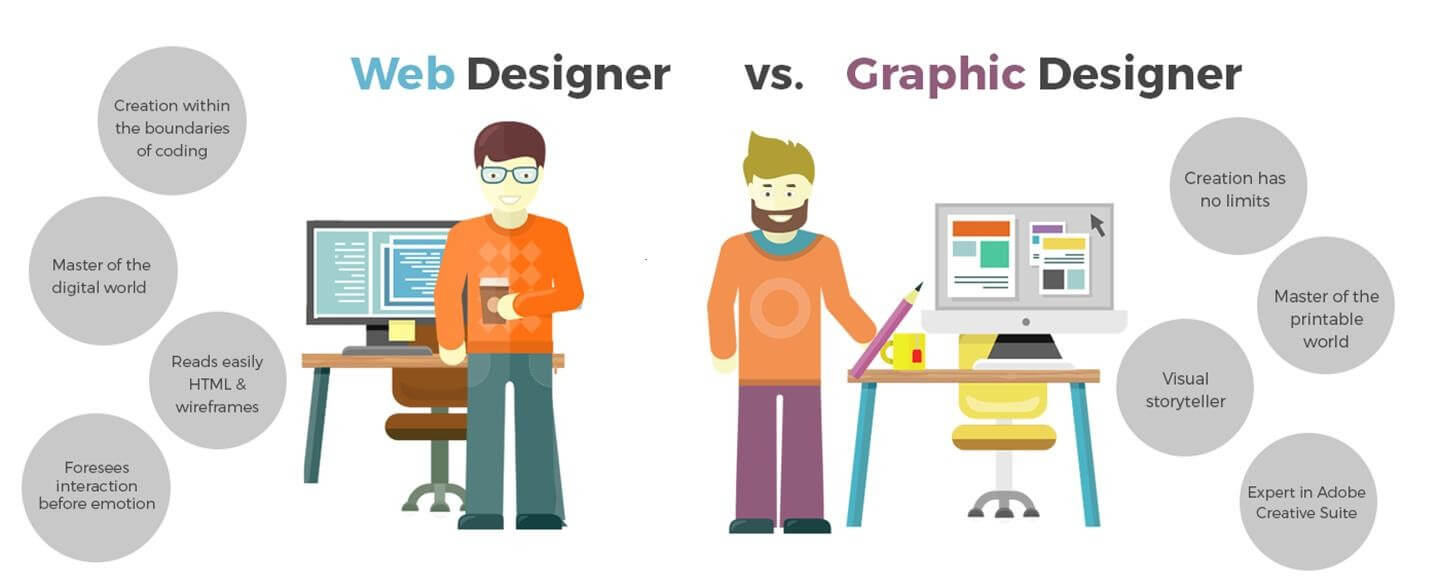Should you trust your Graphic Designer to design your website?

The temptation is logical - you’ve built a great relationship with a talented Graphic Designer who has helped you create your logo, business cards, signage, brochures and other marketing material. They understand your brand and can confidently translate your values visually, so of course when you’re ready to create your online business you knock on the door of your Graphic Designer – however, are they really the right person for the job?
Designing in an interactive world.
While your Graphic Designer has met your creative expectations and print requirements, designing for the web requires a skill set for a different world - an interactive one.
Of course, some of your print assets may be utilised on your website, your logo/brand, colour scheme, corporate fonts and images. Your Graphic Designer will often set the 'atmosphere' of your website and implement important brand guidelines. At Fuel we often work closely with our clients Graphic Designers, to ensure the website communicates the company's brand and ethos along with correct usage of assets.
The success of any website is largely based on User Experience (UX). A specialist Web Designer knows how to translate visuals into an interactive world. This can be the difference between an online visitor and an online customer.
What does User Experience (UX) mean?
The international standard on ergonomics of human system interaction defines UX as "a person's perceptions and responses that result from the use or anticipated use of a product, system or service". In basic terms - UX focuses on the quality of an experience through an interaction.
User Experience is constantly updated due to the ever changing behaviour and expectations of people. UX is more than often misinterpreted as 'Usability’ Experience - but in contrast, UX entails a more hedonic concept taking into account people’s emotions and actions, not just the functionality of the website.
The art of engaging with a digital audience.
Although a Graphic Designer has the creative skills to manage your brand and print, they may lack the knowledge and understanding of the strict parameters of website development. There is a host of online constraints which restrict design capabilities, like file sizes, screen type and resolution, browsers, heat maps, website speed and more.
Most importantly, Web Designers know how to distribute content throughout a website effectively in order to engage a person. Navigating a user quickly to the information they want will entice action. It’s not just about creating a great looking website but being effective in achieving your online business goals.
A custom clean design is what we are passionate about at Fuel - but creating websites that generate leads or increase sales is the pillar of our success.
Designing in the mobile era.
This practice consists in adapting a design created for a desktop computer to multiple types of portable devices, tablets and mobile phones. Designs consist of flexible grids, layouts, images and programming codes that adjust automatically to the user's device - this is called responsive design.
Also, did you know when searching on a mobile device Google’s algorithm favours websites that are fully responsive? This means in order to appear higher in search results on mobile devices and improve your organic ranking, is to rethink your approach to web design and trust a website specialist to create a design which is fully responsive on all mobile devices.
In summary...
Understanding interactions and emotional reactions triggered by a website require specialised knowledge and skills. While a Graphic Designer will have a certain freedom for creativity, a Web Designer has more restrictions and functionality to consider in order to maintain the quality of the interaction with your online visitors.
At Fuel, we’ve developed our Web Design skills on the understanding of consumer online behaviour. The last 15 years of experience has taught us to look at different ways of eliciting emotions through a digital platform. We focus on creating "functional beauty".
The best advice we can give you is to test your website performance and figure out the effectiveness of your online designs. Google has developed different tools to help you make decisions in this area but if you ever need to discuss further we’d be happy to help.
- Fuel Design.



